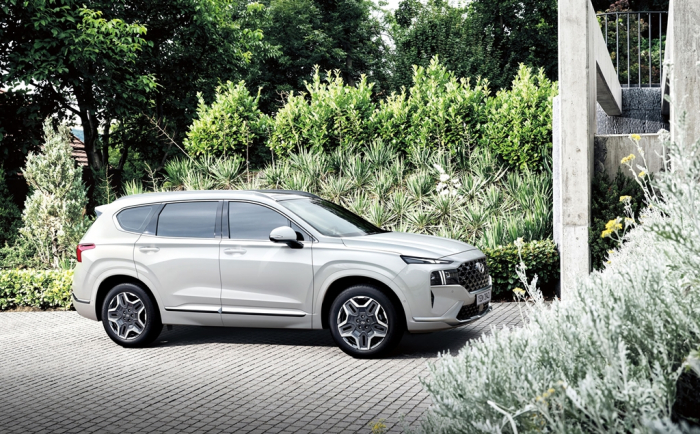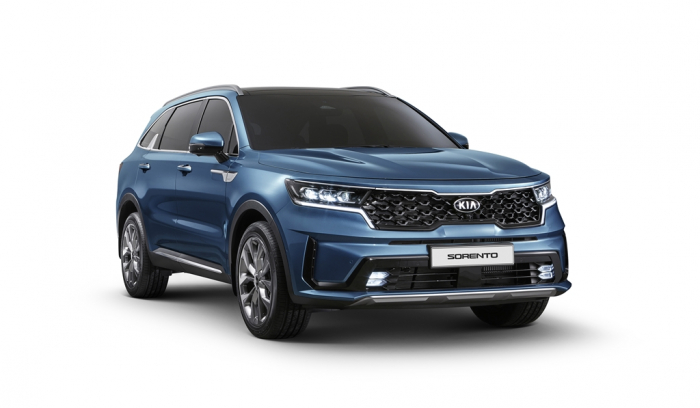Automobiles
Hyundai to ramp up hybrid vehicle production next year
Hyundai and Kia’s hybrid car sales in Jan-Sept already exceed 2021's full-year record high
By Oct 20, 2022 (Gmt+09:00)
3
Min read
Most Read
LG Chem to sell water filter business to Glenwood PE for $692 million


Kyobo Life poised to buy Japan’s SBI Group-owned savings bank


KT&G eyes overseas M&A after rejecting activist fund's offer


StockX in merger talks with Naver’s online reseller Kream


Mirae Asset to be named Korea Post’s core real estate fund operator



Hyundai Motor Co., South Korea’s top automaker, will increase production of hybrid models by some 15% next year to focus on the popular segment as the company has yet to benefit from the US tax credit that favors electric vehicles made in North America.
Hyundai recently notified staff at its engine plant in Ulsan, South Korea, of a plan to raise its engine output there to 1.42 million units in 2023 from this year’s 1.24 million units, industry sources said on Thursday. The Ulsan plant manufactures about 60% of the company’s total domestic engine production. Most of the increase is for hybrid electric vehicles, according to the sources.
That came as global demand remains strong for cars powered by an internal combustion engine and one or more electric motors.
Surging raw material prices have hit not only the profitability of EV makers but also demand. Hybrid vehicles are forecast to make up more than 10% of the global automobile market until 2026 as it is expected to take longer than hoped for EVs to replace existing internal combustion engine cars, analysts said.
“Hybrid cars are so great for profitability that it is difficult to compare them with EVs,” said Yoo Jiwoong, an auto analyst at Daol Investment & Securities. “First of all, you have to survive to invest in EVs.”
RECORD SALES
Hyundai and its affiliate Kia Corp. sold a combined 370,616 hybrid cars in the first nine months of the year, already exceeding an annual record of 366,665 units logged in 2021. Their hybrid sales are expected to top 400,000 in 2022.
Hyundai sold 179,406 units of hybrid models worldwide in the first nine months of 2022, up 10.5% from a year earlier, while its total global sales dipped by 1%. Its affiliate Kia Corp. more than doubled sales of hybrids to 191,210 units during the period when its worldwide sales rose a mere 2%.
In South Korea, hybrid versions of some popular vehicles accounted for about half of the models. Hybrid models of the Santa Fe accounted for 45.1% of the midsize sport utility vehicle's total domestic sales in the first nine months of the year. The Kia Sorento’s hybrid versions made up 72.4%.

Hybrid vehicles are also popular in the US. Hyundai and Kia sold 84,526 units of those cars in total during the January-September period in the world’s second-largest automobile market, up 28.9% on-year. That was near double their EV sales volume of 47,095 units. Some of Kia’s hybrid cars were sold at the manufacturer’s suggested retail price (MSRP) plus an 8% premium.
Hyundai and Kia have together become the No. 3 automaker in Europe thanks to their hybrid vehicles.
BETTER BE WITH VARIOUS POWERTRAINS
Few countries provide subsidiaries for hybrid models, but they maintain popularity as their mileages are longer than those of internal combustion engine cars, and drivers don't need to worry about charging amid insufficient infrastructure. Technology development helped their performance surpass that of vehicles with internal combustion engines. So, they have become a realistic alternative for customers before switching to EVs.
Hybrid vehicles’ global market share in the automobile industry is forecast to more than double to 10.6% by 2026 from 4.9% this year, according to Daol. EVs’ market share is predicted to hit 20% in 2026, one year later than the initial forecast of 2025, the South Korean brokerage house said.
Hyundai and Kia’s hybrid vehicle sales are expected to account for 28% of their total sales by 2026, nearly quadruple the 7.3% in the first nine months of 2022.
Automakers with various powertrains will dominate the global market rather than ones focusing on EVs, industry sources in Seoul said.
“South Korean makers are likely to expand their share in a battle between the South Korean and Japanese camp, which have also invested in the hybrid cars, and the German and US camp, which executed large-scale investment to directly shift to EVs,” said one of the sources.
Write to Il-Gue Kim, Han-Shin Park and Hyung-Kyu Kim at black0419@hankyung.com
Jongwoo Cheon edited this article.
More to Read
-
 AutomobilesHyundai to build Santa Fe hybrid at Alabama plant ahead of schedule
AutomobilesHyundai to build Santa Fe hybrid at Alabama plant ahead of scheduleSep 13, 2022 (Gmt+09:00)
3 Min read -
 AutomobilesKia Sportage Hybrid beats Toyota RAV4 in German review
AutomobilesKia Sportage Hybrid beats Toyota RAV4 in German reviewSep 04, 2022 (Gmt+09:00)
1 Min read -
 AutomobilesHyundai Santa Fe Hybrid outscores Toyota Highlander: Auto Bild ratings
AutomobilesHyundai Santa Fe Hybrid outscores Toyota Highlander: Auto Bild ratingsMay 30, 2021 (Gmt+09:00)
1 Min read
Comment 0
LOG IN


